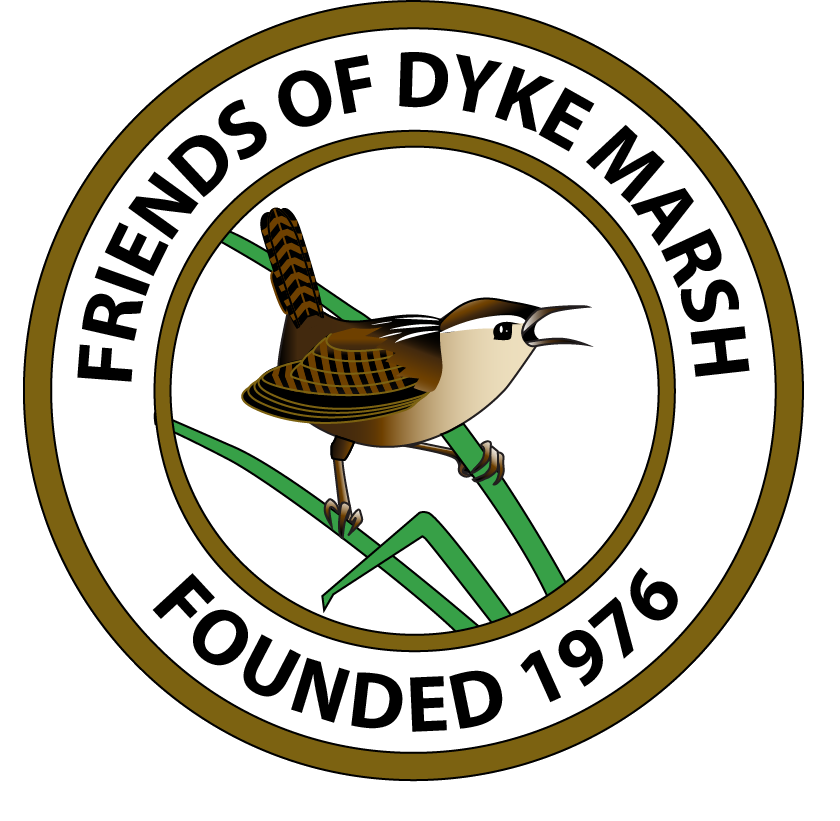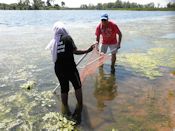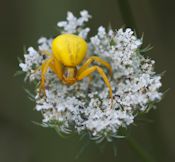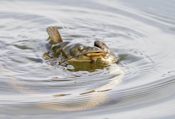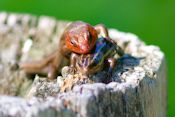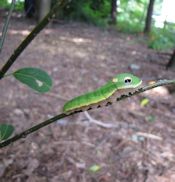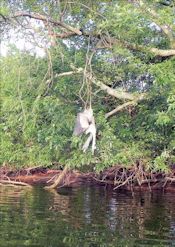On July 14, 2016, FODM hosted 25 George Washington Middle School students participating in the Alexandria Public Schools’ summer STEM (science, technology, engineering and mathematics) program and two of their teachers. The students learned about the natural resources of Dyke Marsh and conducted some water testing using seine nets.
News
During the May 20 and 21, 2016, national BioBlitz, FODMers, National Park Service (NPS) staff and friends identified 13 new spider species in the Dyke Marsh-Belle Haven Park area. Other records for Dyke Marsh: the first spring record for a Philadelphia vireo (Vireo philadelphicus); the second record for the hoary bat (Lasiurus cinereus); one new earthworm (Bimastos palustris), a native species; and two new terrestrial isopods (Porcellio laevis, Trichoniscus pusillus). At our “sister” park, Theodore Roosevelt Island, people found 17 new lichens.
Two species of snake are often seen in Dyke Marsh in the summer.
On July 1, 2016, during a canoe trip in the southern part of Dyke Marsh, FODMers saw an encounter between a common water snake (Nerodia sipedon sipedon) and a catfish. Also called the northern water snake, it is probably the most abundant snake in Dyke Marsh.
These photos (by Ed Eder) indicate how the prey was snared in deeper water and dragged to the shore by a very determined snake.
Spring is breeding time in Dyke Marsh for many species of wildlife, including skinks. The American five-lined skink, (Plestiodon fasciatus), is one of the most commonly seen lizards in eastern North America and is frequently observed around logs along the Haul Road Trail (photo, skinks mating May 2016 by Ed Eder).
At the quarterly meeting of FODMers and friends on May 11, 2016, Alan Ford and Laura Beaty gave a presentation on the interrelationships of plants and animals and the important role of pollinators and leaf-eaters. Alan is president of the Potowmack Chapter of the Virginia Native Plant Society and Laura chairs the Propagation Committee.
Every spring, FODMers welcome the spring return of the ospreys (Pandion haliaetus) to Dyke Marsh and the Potomac River shoreline where these magnificent raptors build and refurbish their nests and raise their young. In recent years, there have been approximately 10 to 12 active osprey nests within FODM’s breeding bird survey tract, a three-mile area that extends from the Porto Vecchio condominiums near Hunting Creek to south of Morningside Lane.
Despite the rebound in the osprey population, threats still exist.
